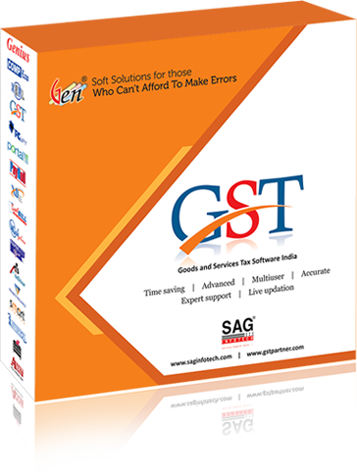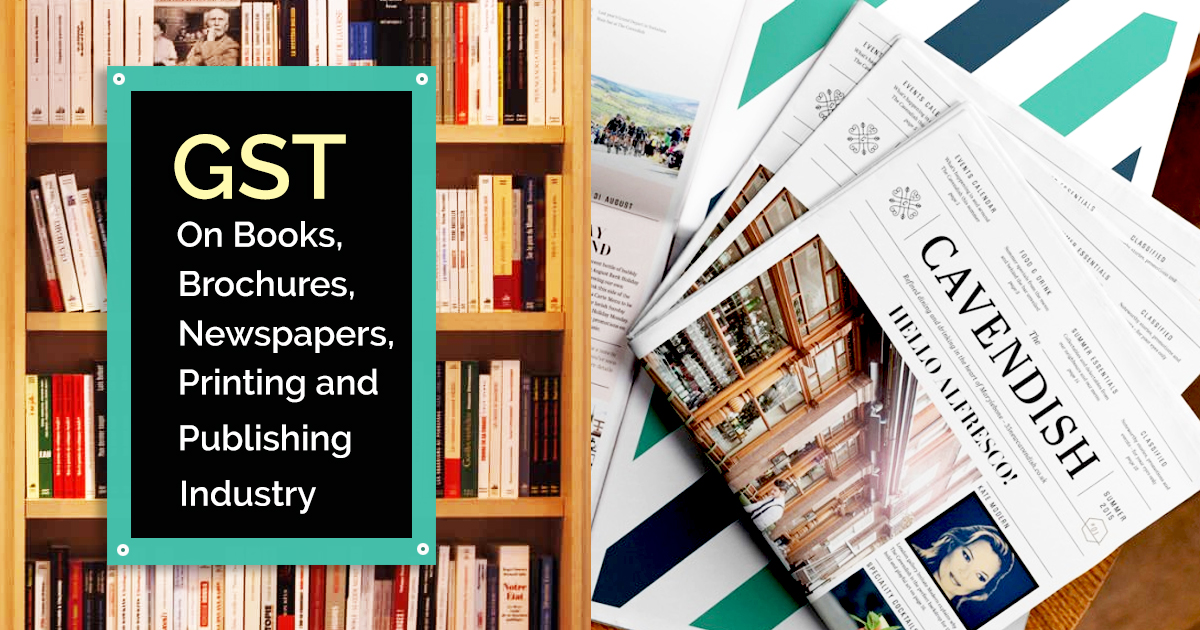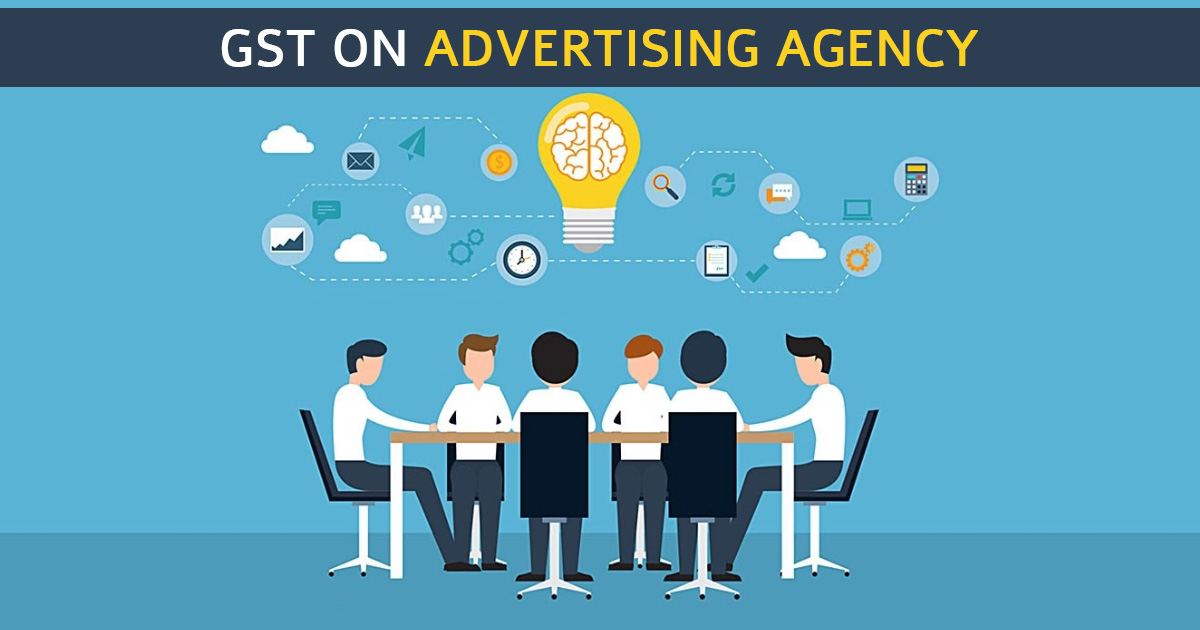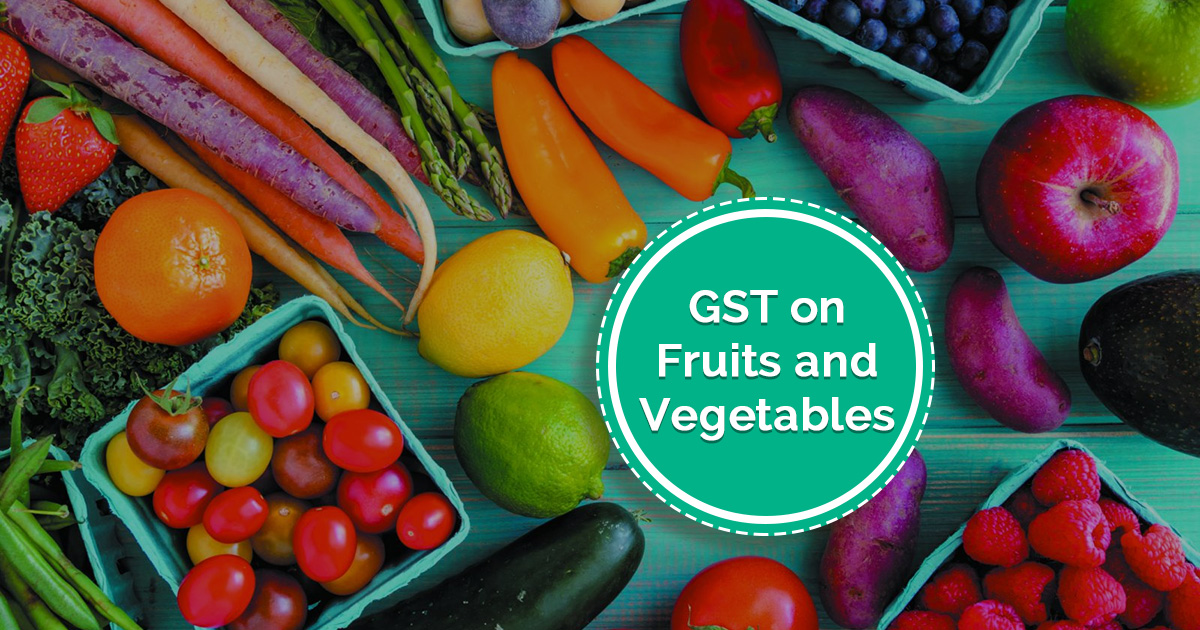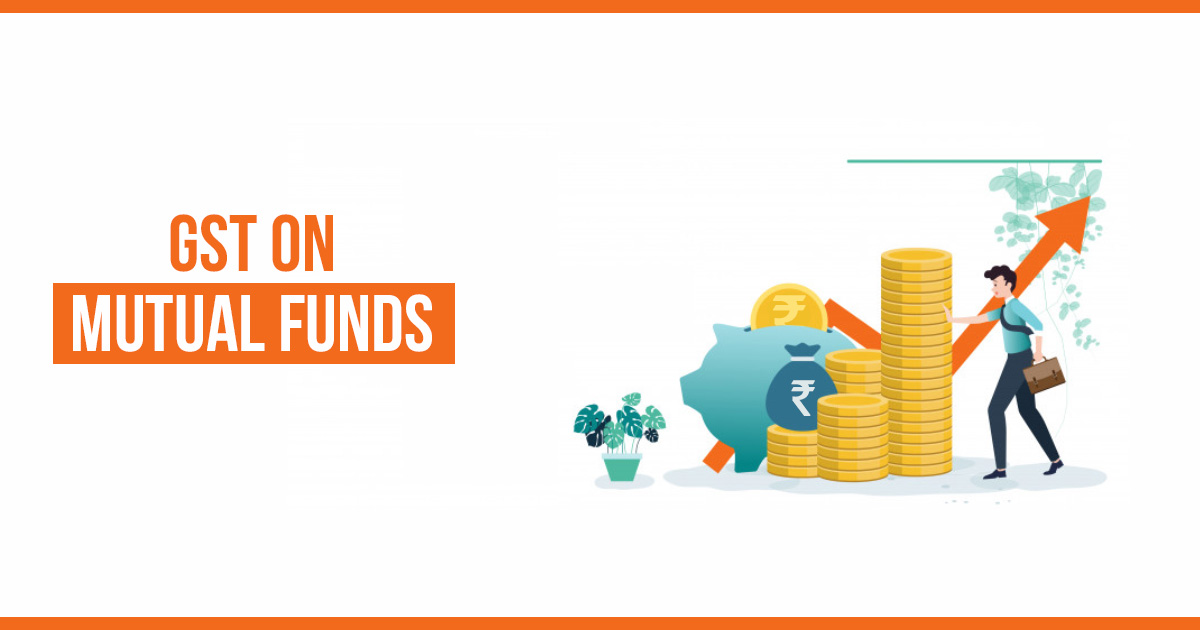Ever since the GST (Goods & Services Tax) has been launched in India, businesses have been looking for the right GST rates for their products and services. Now the major impact of GST on Books, Brochures, Newspapers, Printing and Publishing Industry.
If you, in any way, deal in books, newspapers, printing, brochures, etc., this article could be helpful for you. Although there is no direct GST (tax) on books, the related things including inputs like printing, binding, brochures, manuscripts, etc., attract GST at different rates.
Check out the list below:
GST rates for Printing Services and Items (books)
NIL GST rate: The following items/services have been exempt from GST:
Printed books, Braille books, Newspapers, periodicals and journals (including those containing advertisements), Children’s drawing, colouring and picture books, wall maps, atlas, globes, printed maps and other similar charts, stamp papers (juridical/non-juridical), court stamps sold by the Government authorized vendors, rupee notes issued by the RBI, Postal items like postcard, envelope, etc., and chequebooks.
5% GST Rate items/services
Printed material like brochures and leaflets (single sheet or multi sheet)
12% GST Rate publishing material/services
Printed music or manuscript, commercial plans/drawings for engineering, architecture, industrial and other purposes (originally drawn by hands), carbon copies, handwritten material, photographic reproductions, etc., unused postage, revenue stamps and similar items, banknotes, stamp-impressed paper, bond certificates, share certificates, cheque forms and title documents, any kind of printed calendars, transfer documents (decalcomanias), printed greeting cards, printed postcards, personal message cards or invitations (blank or illustrated, with or without envelopes), and all other printed materials, including printed photographs, pictures, any commercial or trade advertising printed matter, posters, catalogues, designs, pictures and similar items.
Recommended Post: GST impact on common man
GST Impacts on Printing Industry in India
Even though there is no tax on books, the prices of most books have increased because of increased tax on printing and related things. The price of books will increase approximately by 10-20% after GST.
One negative thing is that the publishers are not allowed to claim input credit on books since there is no tax on books, and they cannot claim the tax they paid on input services like printing and binding, and therefore, they are forced to increase the rates of books. “Books are not taxable under GST, but we are at a disadvantage as we lose out on input tax credit. Prices of books will increase by 15 per cent to 20 per cent,” said Taxmann Director Amit Bhargava, in an interview.
Many publishing houses, including Taxmann, have increased the prices of their books to compensate for the impacts of GST. Even if you do not see any immediate hike in the cost of your favourite books, it is likely that you’ll start seeing it in the coming months.
“We have not changed the MRP of books currently but we believe books will see an upward revision in prices in the next 1-2 months,” says Nabhi Kumar Jain, owner of Jain Book Depot, New Delhi. The prices of school/college books are also likely to increase by the next academic session.
“We believe that MRP of books could go up by 12-15 per cent as costs of publishers have gone up under the GST regime,” confirmed Subash Goel, Treasurer, Publishers’ association in India.
One of the biggest challenges is the 12 percent GST on author royalties, which is levied through reverse charge mechanism from publishers and no ITC is being paid on it. In turn, the publishers are charging the tax from their authors.
“While the well-known authors would be able to convince the publishers to absorb the GST on royalty, the lesser known and new writers would be squeezed. The larger problem, however, is that the publishers operate on about 5% margins and that they are facing the squeeze,” said Ravi Subramanian, author of the bestseller If God Was a Banker.
There is also a GST on printing paper, and the government is not offering any input credit on sales tax (and/or excise duty) paid by publishers on their transition stocks. It has further increased the loss for publishing houses.
So, GST is not all good. The authors and publishers are suffering from the negative impacts and so are the common people who buy books.

